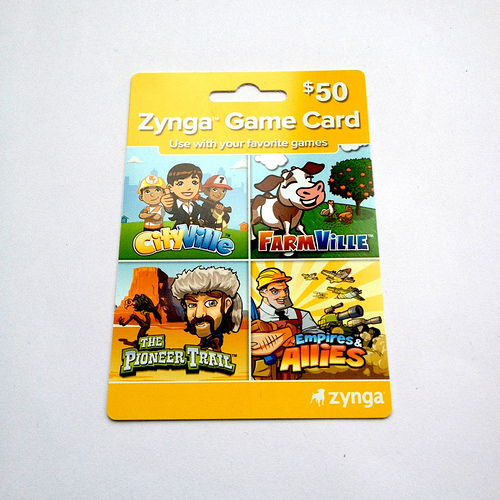By Joel Smart (The Cascade) – Email
Print Edition: April 3, 2013
I used to be addicted to a Facebook game. Actually, two of them. The first one was called Battle of the Bands, which allowed you to “level up” by engaging in band “battles” against other Facebook players. The second was Rockstar’s buzz-hyping Red Dead Redemption: Gunslingers. Both games were awful, but the appeal of moving up the rankings among my friendslist and even the global charts pulled me in. Even at the time, I knew it was stupid – but it only took a couple minutes every couple hours to stay competitive. These free-to-play games have captured the interest and ensnared plenty of others like me.
Farmville is perhaps the most well-known of them. The worst part is that almost all of these games allow hopelessly addicted players to get an additional leg up by plugging in their credit card numbers. In other words, the game is rigged and dangerous.
It’s for this reason that I was initially quite sceptical of Stephen Richards’ Gamasutra article entitled “Free to play: a socialist alternative.” He spoke of the general negative perception given to these ruthless profit-at-all-costs ventures.
“Just as technology [allowed developers] to experiment with unique forms of narrative and artistic expression … [business people] realized there was a much easier, less risky way to build a game,” he wrote. But, then he said something that really threw me off guard.
He explained that these games have to actually offer something to players for free, they can’t be overly unfair or buggy or expensive, or players would stop playing them before they could become profitable. As well, the paying players actually begin to subsidize the experience of the new and non-paying players – a Robin Hood effect, Richards explains. Because games like these will be the most successful and therefore replicated in the future, he believes free-to-play games in the future “will be closer to Robin Hood than capitalist leech.”
In other words, while many of these games use trickery and an unlevel playing field to swindle a profit out of an unwitting user base, time will hopefully weed these games—like Farmville—out of existence. In their place should arise new free-to-play gaming models that are actually fun to play – games that don’t treat their players like hopeless addicts, that don’t corrupt the experience with cheap tactics.
In another Gamasutra article, game designer Bennett Foddy (known for the hilarious free online game QWOP) addressed many of the problems with free-to-play games that rely on microtransactions. At one point, Foddy compared these developers to drug dealers, and added, “It’s like selling players steroids to cheat with.” Foddy went on to suggest some ideas for improving these games – ways that could push us towards Richards’ Robin Hood ideal.
You could charge players for the opportunity to have their high score added to the list, he suggested, or to unlock different difficulty levels. He also made a vague suggestion that got me thinking. “You could charge money for permanent changes to the game that apply to everybody,” he said.
This is an idea that could really work. What if—although they could still have certain individually-driven goals—games put more players on the same team. Paying and non-paying players alike could enjoy the game to the full effect – but together players would have to work towards certain funding goals to unlock new areas, new adventures, new features. Rather than fostering an addict-dealer relationship, a community-growing focus would develop.
I used to be addicted to a Facebook game. I know many people who still are. Right now, many of these games are a symbol of what’s wrong with the gaming industry – but they don’t have to be. They could be amazing – but it can only happen when gamers realize that they deserve better.


